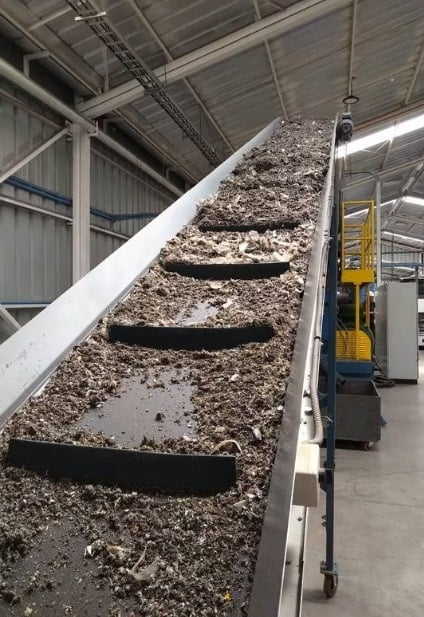Abu Dhabi-based Terrax, owned by husband-and-wife team Theresa and David Wernery and their partner Cameron Cairns, is seeking to tackle the construction industry’s negative environmental impact by transforming landfill waste into an alternative to plywood.
The production of construction plywood results in significant air and water pollution, while shipping it to the UAE where it is not made locally is expensive and environmentally unfriendly. The process often requires deforestation in many parts of the world, exacerbating the climate crisis.
Terrax has been exploring solutions to the issue and discovered a technology in Brazil that uses unwashed and unsegregated waste to make products.
The team has invested in this technology to produce a range of products, including boards that can replace plywood, as well as plastic composite decking, pergolas, and cladding. They also make formwork, shuttering products, hoarding, fencing, pallets, countertops, and more.
What’s more, the product has over 100 uses and can be made from materials that would otherwise go straight to a landfill.

Theresa Wernery explained that the company will not use good plastics, as those can be recycled, and they will instead use materials like Tetra Pak, which cannot be recycled in the UAE, and carpet waste, which is not easily recyclable globally.
They also use fibreglass, multi-layer packaging, films, crisp packets, and other non-recyclable items and materials. To source these materials, they will work with waste management companies across the UAE.
However, the team has faced obstacles in terms of suppliers understanding the benefits and the lack of producer responsibility legislation. The company must also be competitive against suppliers of normal plywood.

The lack of standardisation in waste disposal and recycling has made it challenging for Terrax to find a consistent supply of materials. Nonetheless, the company has trialled the product with developers such as Emaar and Aldar, and trial runs in the UAE have so far been successful.
Terrax’s journey has been self-funded so far, using income from their existing business, and they hope to have a machine that can produce the alternative to plywood by September.
The trio believes that the product can make a significant impact on the construction industry, especially given the growing concern about environmental issues.
As Ms Wernery says, “It’s a physical by-product of our existence and as long as we produce the volumes we produce here, there needs to be a physical solution.”





